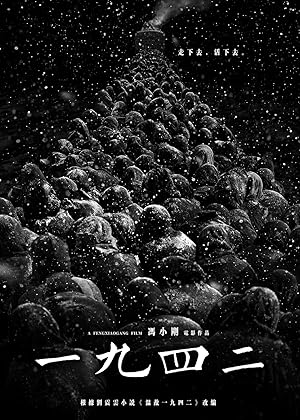
Back to 1942 Page #9
Why bring it up again now?
"Sixteen years later, Liubao
found Huazhi in Luoyang."
"Lingdang's whereabouts are still unknown."
"Twenty years later, someone
saw Xingxing at Baoji."
"She sent money home,"
"but had no wish to return home
or see anyone she used to know."
"After returning to the United States,."
"Theodore White lost his job in the
Red Scare of Joseph McCarthy."
"He won the Pulitzer Prize in 1964,"
"and died in New York in 1986."
"In 1949, Chiang Kai-shek lost
mainland China and retreated to Taiwan."
"More than ten million people fled Henan
in the famine of 1942."
"Three million starved to death."
Translation
Translate and read this script in other languages:
Select another language:
- - Select -
- 简体中文 (Chinese - Simplified)
- 繁體中文 (Chinese - Traditional)
- Español (Spanish)
- Esperanto (Esperanto)
- 日本語 (Japanese)
- Português (Portuguese)
- Deutsch (German)
- العربية (Arabic)
- Français (French)
- Русский (Russian)
- ಕನ್ನಡ (Kannada)
- 한국어 (Korean)
- עברית (Hebrew)
- Gaeilge (Irish)
- Українська (Ukrainian)
- اردو (Urdu)
- Magyar (Hungarian)
- मानक हिन्दी (Hindi)
- Indonesia (Indonesian)
- Italiano (Italian)
- தமிழ் (Tamil)
- Türkçe (Turkish)
- తెలుగు (Telugu)
- ภาษาไทย (Thai)
- Tiếng Việt (Vietnamese)
- Čeština (Czech)
- Polski (Polish)
- Bahasa Indonesia (Indonesian)
- Românește (Romanian)
- Nederlands (Dutch)
- Ελληνικά (Greek)
- Latinum (Latin)
- Svenska (Swedish)
- Dansk (Danish)
- Suomi (Finnish)
- فارسی (Persian)
- ייִדיש (Yiddish)
- հայերեն (Armenian)
- Norsk (Norwegian)
- English (English)
Citation
Use the citation below to add this screenplay to your bibliography:
Style:MLAChicagoAPA
"Back to 1942" Scripts.com. STANDS4 LLC, 2025. Web. 23 Feb. 2025. <https://www.scripts.com/script/back_to_1942_23823>.






Discuss this script with the community:
Report Comment
We're doing our best to make sure our content is useful, accurate and safe.
If by any chance you spot an inappropriate comment while navigating through our website please use this form to let us know, and we'll take care of it shortly.
Attachment
You need to be logged in to favorite.
Log In